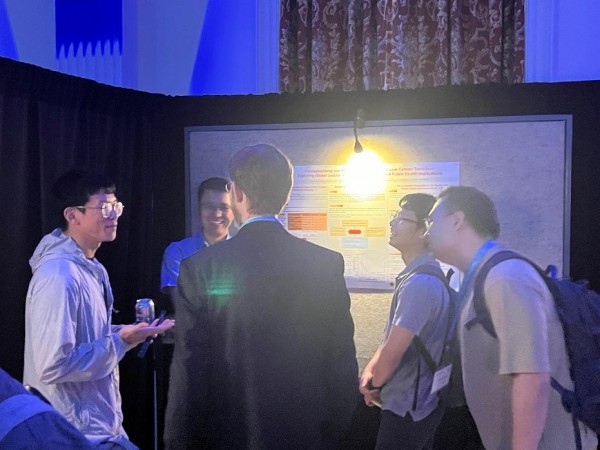New Directions Fund Powers Research on Air Quality and Public Health
Led by Kuishuang Feng, the research will focus on conceptualizing and modeling the co-benefits of air quality and public health.
GEOG Associate Professor Kuishuang Feng's team has been awarded the New Directions Fund (NDF) for their proposal “Conceptualizing and Modeling the Co-benefits of Air Quality and Public Health from Low-Carbon Transition.” This project aims to explore the synergistic benefits of the Low-Carbon Transition (LCT) on air quality and public health, with a particular focus on the equitable distribution of these benefits across various communities in California. The project was also co-directed by Jie Chen, professor in the School of Public Health at the University of Maryland.
The project seeks to integrate environmental science, economics and public health to develop a comprehensive framework for analyzing the co-benefits of LCT. Through spatial analysis of air pollution and public health data, the researchers will investigate how LCT policies can enhance air quality and public health. Additionally, the study will identify geographical disparities in the distribution of these co-benefits within California, providing valuable insights for policymakers.
“Future climate policy making will focus on human health and social sustainability alongside air pollution reduction. This will require cooperation and communication between different disciplines,” Feng said. “Our program fosters collaboration between the geographical sciences and public health at UMD, laying the groundwork for expanding research on the co-benefit of LCT.”

Ph.D. student Jiaxun Sun will also contribute significantly to this project. His work focuses on understanding the equitable distribution of LCT outcomes and health benefits, with the ultimate goal of ensuring fairness in the co-benefits derived from LCT.
“Ensuring that everyone can equally benefit from LCT, whether through improved air quality or better public health, is of utmost importance,” Sun said.
The New Directions Fund is part of the Maryland Catalyst Fund program, an internal faculty research support initiative at the University of Maryland. Learn more about New Directions Fund.
Main image: Kuishuang Feng and his team introduce their project “Conceptualizing and Modeling the Co-benefits of Air Quality and Public Health from Low-Carbon Transition." Courtesy of Feng.
Published on Mon, 11/11/2024 - 14:31


